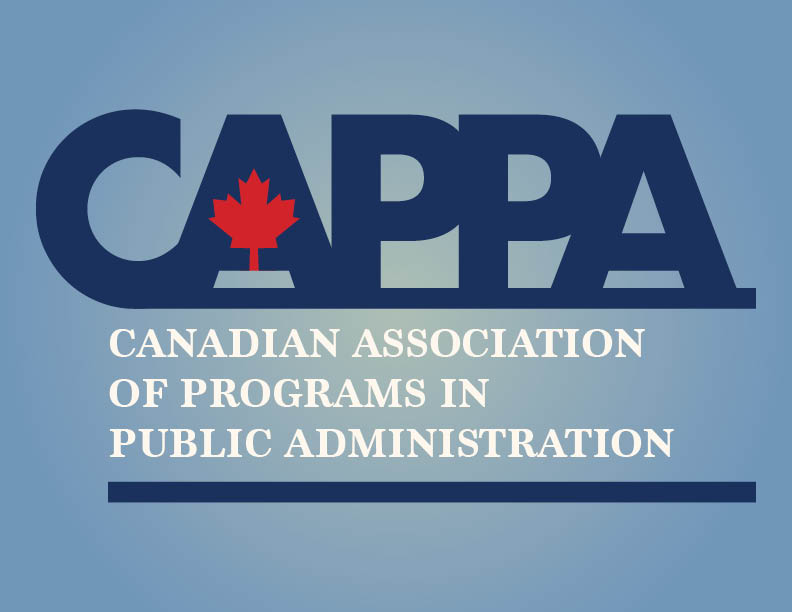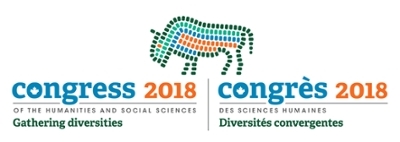Speakers
Recognition for a Stimulating Presentation
Recognize your fellow conference speakers for a stimulating presentation at the 2018 CAPPA Conference!
- Anyone registered to attend the CAPPA Conference can be a nominator.
- Anyone presenting at a CAPPA or CAPPA / CPSA joint panel can be nominated.
- Nominators are encouraged to nominate as many people in as many categories as they see fit.
- If you would like to nominate the same person for multiple categories, please submit a separate form each nomination. Forms with multiple categories selected will NOT be considered.
 |
Michael Atkinson, Johnson Shoyama Graduate School of Public Policy Michael Atkinson is a Professor in the Johnson-Shoyama Graduate School of Public Policy, University of Saskatchewan campus. He has held a number of academic administrative appointments including Associate Vice President Academic at McMaster University (1995-97) and Provost and Vice President Academic at the University of Saskatchewan (1997-2007). He served as the founding Executive Director of Johnson-Shoyama (2007-2015) and has also held visiting appointments at Duke University, Western University and the Université de Strasbourg. In the early 1990s he served as editor of Governance: An International Journal of Policy and Administration. His academic background is in political science and he has published extensively in that field and in public administration and public policy. He is a past-President of the Canadian Political Science Association and in 2012 was awarded the Lieutenant Governor’s gold medal for achievement in public administration. His research interests include public sector compensation, political ethics and the broad topic of good governance. Talks
|
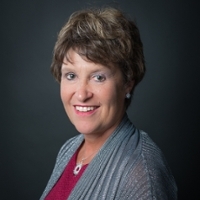 |
Karen Aulie, Chair, Saskatchewan Public Service Commission <bio to come> Talk
|
 |
Heather Bear, Vice-Chief, Federation of Sovereign Indigenous Nations Fourth Vice Chief Heather Bear is a member of the Ochapowace First Nation in Saskatchewan. Prior to being elected to the Federation of Sovereign Indigenous Nations as Fourth Vice Chief, Heather had served as a Council member of the Ochapowace First Nation for six years. During her term of office, Heather has worked collectively for the betterment and advancement for all First Nations in the area of Treaty Implementation, prioritized education as a Treaty Right and the foundation for our schools, ensured the development of First Nations youth to become the future leaders, and continues the commitment to improving the life situations of First Nations people. Vice Chief Bear is an alumni of the First Nations University of Canada, she has obtained her Certificate in Indigenous Leadership Governance and Management Excellence through the Banff Center of Management and has served on numerous boards and commissions at the First Nation, Tribal Council and Federation level. In October 2014, history was made as Vice Chief Heather Bear was the second woman elected to the FSIN Executive in 65 years. Talk
|
 |
Pierre Olivier Bédard, Université Laval Pierre-Olivier Bédard has been a Senior Advisor in the International Relations department at National Research Council Canada since 2017. He was previously a Mitacs Canadian Science Policy Fellow with Glboal Affairs Canada, a Teaching Fellow in the Department of Economics at Université Laval, and a Postdoctoral Fellow for the Centre for Humanities Engaging Science and Society at Durham University in the United Kingdom. Bédard completed his education at Université Laval, earning his Bachelor’s, Master’s and PhD in Political Science. Talk |
|
Daniel Béland, Johnson Shoyama Graduate School of Public Policy A political sociologist studying public policy from an historical and comparative perspective, Daniel Béland has published 16 books and more than 110 peer-reviewed journal articles. Professor Béland has held visiting fellowships at the University of Chicago, Harvard University, George Washington University, the University of Helsinki, the University of Southern Denmark, and the Woodrow Wilson International Center for Scholars. He currently serves as the editor (French) of the Canadian Journal of Sociology, the co-editor of the journal Global Social Policy, and as president of the Research Committee 19 (Poverty, Social Welfare and Social Policy) of the International Sociological Association. In addition to his academic work and service, since joining the Johnson-Shoyama Graduate School back in 2008, Professor Béland has participated in training sessions for civil servants, provided policy advice to federal and provincial officials, and testified in front of the Standing Committee on Finance of the House of Commons and the Standing Senate Committee on National Finance. He has also been quoted in major newspapers and is regularly asked to give radio and television interviews on key policy and political issues. Talks |
|
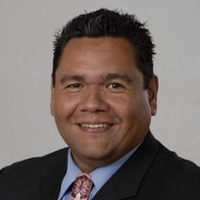 |
Edmund Bellegarde, Tribal Chief, File Hills Qu'Appelle Tribal Council Inc. Tribal Chief Bellegarde has served the File Hills Qu’Appelle Tribal Council since first being elected in September 2006 to September 2015. He is currently serving as the Transition Lead as the FHQ Tribal Council transitions from it’s current incarnation to a confederacy. In this leadership role he also serves as President and/or Chairperson of FHQTC Executive Council, FHQ Developments Ltd, Silver Sage Housing Corp, All Nations Healing Hospital, Treaty 4 Management Committee, FHQ Casino Holdings Ltd, Keseechiwan Holdings Ltd, Points Athabasca FHQ Contracting, Federation of Saskatchewan Indian Nations Executive Council, and numerous other boards and committees at all levels in the community such as the Economic Development Regina, Saskatchewan First Nations Power Authority and North American Indigenous Games 2014 Regina. In his role as Tribal Chief he has a particular focus on strengthening First Nations community development through youth, economic development, education, health and governance. Edmund is currently pursuing his Master’s degree and is enrolled as a graduate student in the University of Regina’s Kenneth Levene Graduate School of Business Executive MBA program. Talk
|
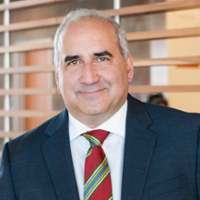 |
Luc Bernier, University of Ottawa Luc Bernier joined the Faculty of Social Sciences this fall, after twenty-five years at École nationale d’administration publique (ENAP), where he was the Director of studies at the ENAP campus in Montreal and Director of teaching and research from 2001 to 2006. Professor Bernier was previously teaching at Condordia University after completing his Ph.D. from Northwestern University. He also served as the President of the Institute of Public Administration of Canada from 2005 to 2006. Professor Bernier is a prolific writer on the subjects of crown corporations, governance, international politics of Quebec and reforms in the public sector. The central theme of Bernier’s research focuses on the transformation of public administrations, innovation in the public sector, public policy and governance. Talks |
 |
Malcolm G. Bird, University of Winnipeg Malcom Bird is an Associate Professor in the Political Science Department at the University of Winnipeg. Bird earned his Bachler’s in history at the University of British Columbia, his Master’s in history at York University, and his PhD in Public Policy and Administration from Carleton University. He is fascinated by the evolution of Canadian Crown Corporations and their relationships to their owners, various interest groups and the citizenry. Talk |
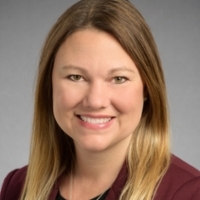 |
Cynthia Bojkovsky, Johnson Shoyama Graduate School of Public Policy Cynthia Bojkovsky is a second-year doctoral student at the Johnson Shoyama Graduate School of Public Policy at the University of Regina. She is interested in health and social policy, and applies this knowledge by contributing to research and participating in course instruction. Her PhD dissertation topic pertains to policies related to autism spectrum disorder. Ms. Bojkovsky obtained a B.Sc. in Occupational Therapy from the University of Alberta and a M.Sc. in Occupational Therapy (post-professional) from Dalhousie University. Her clinical experiences are diverse and she has developed a speciality in tertiary pediatric rehabilitation. Prior to commencing doctoral studies, Cynthia was a faculty member at Saskatchewan Polytechnic, where she provided classroom instruction and curriculum design for several Human Services programs, and coordinated distance education for Health Sciences. Her other research experiences include topics such as online youth cognitive behavioural therapy and inter-professional education as a method of supporting health for culturally and linguistically diverse populations. Talk |
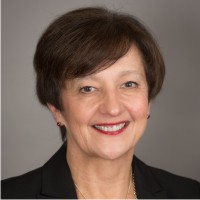 |
Kathy L. Brock, Queen’s University Kathy L. Brock is a Professor, School of Policy Studies and cross-appointed to the Department of Political Studies, Queen’s University, current Past-President of the Canadian Association of Programs in Public Administration, and past National Research Chair for the Institute of Programs in Public Administration. She has published books, academic articles and reports on nonprofit and voluntary organizations, Canadian and comparative politics and government, federalism and constitutional matters, and Aboriginal governance and issues. She is currently working on a manuscript on the operation of the Canadian federal system, and articles on the views of DMs and CAOs regarding the current state of the public service, medically assisted dying (suicide) policy, public sector ethics and Aboriginal policy and Indigenous governance. She has commenced a new study called “Riding the Trump-Trudeau Wave”. Active in public affairs, she has served as a nonpartisan advisor to federal. provincial and territorial governments, political parties, an Aboriginal organization, nonprofit organizations and on a number of national and local boards, including her current work with the Canadian Association of Programs in Public Administration, Research Committee of the Institute of Public Administration of Canada, and Board member of the Limestone Learning Foundation. Talks
|
 |
Kent Campbell, Interim Deputy Minister to the Premier and Cabinet Secretary, Deputy Minister of Intergovernmental Affairs, Government of Saskatchewan Kent Campbell is the Interim Deputy Minister to the Premier and Cabinet Secretary. Kent was appointed to this position on August 28, 2017, by former Premier, Brad Wall. In this role, Kent has oversight responsibility for the operations of the Saskatchewan Public Service and its 12,000 employees. Kent is also Deputy Minister of Intergovernmental Affairs with responsibility for leading provincial activities in the areas of Canadian intergovernmental relations, protocol and Francophone affairs. He has previously served as Saskatchewan’s Deputy Minister of the Economy and Deputy Minister of Energy and Resources. With more than 20 years of experience in the public sector, Kent has extensive experience in developing and implementing public policy, in managing major projects, and in leading public sector organizational change. Kent has two undergraduate degrees from the University of Regina, a Masters of Business Administration from Queen’s University and is a Chartered Professional Accountant. In 2009, Kent was selected as one of Canada’s Top 40 Under 40TM. He has also been the recipient of the Premier’s Award for Excellence in the Public Service. Talk
|
 |
Isabelle Caron, Dalhousie University Isabelle Caron presently serves as an Assistant Professor in the School of Public Administration at Dalhousie University, as well as an Instructor at the National School of Public Administration. She has previously worked a Teaching and Research Assistant at the University of Ottawa, a Policy Analyst in the Privy Council Office in Ottawa, a Senior Policy Analyst in the Department of Canadian Heritage, a Senior Advisor in the Treasury Board Secretariat of Canada, a Research Analyst at the Canada Public Service Agency, and a Project Assistant with Health Canada. Caron earned her BA in multidisciplinary studies at the Université Laval, and her MA in Sociology and PhD in Public Administration at the University of Ottawa. Talks
|
 |
Alana Cattapan, Johnson Shoyama Graduate School of Public Policy An assistant professor at the Johnson Shoyama Graduate School of Public Policy, Alana Cattapan previously served as a CIHR postdoctoral fellow at Novel Tech Ethics in the Faculty of Medicine at Dalhousie University. Her research examines stakeholder engagement in health policy making in Canada. More specifically, she takes a critical feminist approach to the study of public policy, looking at the processes by which women and other historically marginalized communities are left out of health policy making. She is also collaborating on research initiatives related to gender, law and public policy including projects on gender and public engagement in Canada, and feminist approaches to the digital humanities. Talk |
 |
Etienne Charbonneau, École nationale d'administration publique Étienne Charbonneau is an Associate Professor of Public Management at the École nationale d’administration publique in Montreal. He is the co-director of Centre de Recherche sur la Gouvernance (CERGO) and a Fellow at the Center for Organization Research and Design (CORD), at Arizona State University. He earned his PhD from the School of Public Affairs and Administration at Rutgers University. His research focuses on performance managements, citizen satisfaction, and accountability. Talk
|
 |
Peter Constantinou, York University Peter Constantinou is one of Canada’s leading public policy practitioner academics and award winning university lecturer. Dr. Constantinou holds a BA (Specialized Honours) in Public Policy and Administration from York University, and an MA in Public Policy and Administration from McMaster, and a Ph.D. in Higher Education from the UofT. His doctoral dissertation was a landmark study of government relations with stakeholders in the post-secondary education sector in Ontario. He is a long-time public servant who has worked at the federal and provincial levels of government and in the college and university sector. He was a Research Analyst with the Royal Commission on Electoral Reform and Party Financing; a Policy Analyst, Senior Policy Advisor and Senior International Trade Advisor with the Ontario Ministry of Environment and Energy; and Chief of Staff and Executive Assistant to an Ontario Minister of Education and Training. Talk |
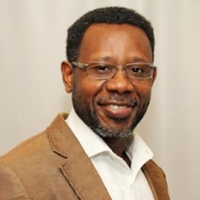 |
Charles Conteh, Brock University Charles Conteh’s research and teaching interests are in the areas of Canadian and Comparative Public Policy, Public Management, Political Economy and Governance. His current research focuses on governance structures and processes in complex and dynamic policy systems, particularly examining collaborative and strategic policy formulation and implementation. Prof. Conteh currently investigates how local, regional and national economies are reinventing themselves in the face of seismic global economic and ecological changes. A related interest is governance reform in developing countries. Talk |
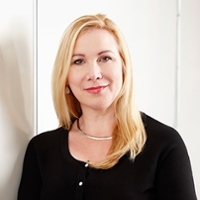 |
Wendy Cukier, Diversity Institute, Ryerson University Wendy Cukier is one of Canada's leading experts in disruptive technologies, innovation processes and diversity. She has written more than 200 papers on technology, innovation and management and is coauthor of the bestseller “Innovation Nation: Canadian Leadership from Java to Jurassic Park.” She is the Founder of Ryerson University’s Diversity Institute, which she founded in 1999 and has led projects aimed at promoting the participation and advancement of underrepresented groups. Dr. Cukier has assisted organizations in becoming more inclusive through innovative programs such as DiversityLeads funded by the Social Sciences and Humanities Research Council, which tracks the progress, impediments and evidenced-based strategies for promoting diversity in organizations. During her five-year term as Ryerson University's Vice-President of Research and Innovation, she transformed her unit to support the growth of research and to promote innovation and commercialization. Under her leadership, research and partnerships expanded, driving an increase in external funding by more than 60% over five years. Talk |
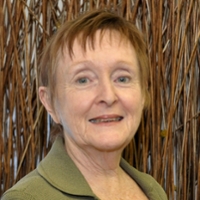 |
Carol Dauda, University of Guelph Carol Dauda's current research is centered on recent attempts to regulate young people's sexuality in liberal democracies comparatively. The study is aimed at understanding the role of the state in moral regulation historically as well as in contemporary politics and the implications for gender identity and equality. The research is focused on the ideational dimension of public policy and more specifically on how powerful symbols of childhood in relation to adulthood (generation) shape and are shaped by the recent legislation on the age of sexual consent in Canada, the UK , the US and Australia in the midst of contentious politics over sexual diversity and child internet abuse, in particular, child pornography. Talk |
 |
Patrick de Lamirande, Cape Breton University Patrick de Lamirande is an Associate Professor of the BBA Program under the Shannon School of Business. He received his BA (economics) and his MA (economics) both from the Université Laval. He then went on to earn his PhD (economics) from Université de Montréal. Talk |
 |
Cadmus Delorme, Chief, Cowesses First Nation Chief Cadmus Delorme is a citizen of Cowessess First Nation. Graduating from Cowessess Community Education Centre, Chief Delorme moved away from Cowessess to pursue experience and higher learning. After achieving a Undergrad Degree at the First Nations University of Canada and a Masters Degree at the Johnson Shoyama School of Public Policy, Chief Delorme moved home and became Chief. Talk
|
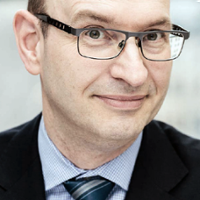 |
Patrice Dutil, Ryerson University Patrice Dutil is an author, commentator, occasional activist and professor in the Department of Politics and Public Administration at Ryerson University (since 2006). Prior to then, he was visiting scholar at Massey College, University of Toronto in the last half of 2013 and visiting professor at the George Mason University School of Public Policy during the winter term of 2014. His main research interests are political and public sector leadership, the process of political development, and the study of elections. Dutil writes about diverse aspects of institutionalism and the policy development process. Talk |
 |
Patrick Fafard, University of Ottawa Patrick Fafard is an associate professor in the Faculty of Social Sciences at the University of Ottawa. His research deals mainly with Canadian politics and public policy and builds on a career in government both federally and provincially. He is currently working on a number of projects relating to the politics of public health, broadly defined, and the role of science and evidence in public policy. He also has a longstanding interest in Canadian federalism and intergovernmental relations and have published a wide range of research in this area. Talk |
 |
Isabelle Fortier, École nationale d'administration publique Isabelle Fortier is a Professor at the National School of Public Administration in Montréal. She explores public administration reforms, the evolution of the roles and functions of the state, and women and management, among other things. She earned her Bachelor’s in Civil Engineering and her MBA at Université Laval, and completed her PhD at HEC Montréal. Talk |
 |
Nicholas Fraser, University of Toronto Nicholar Fraser is a doctoral student at the University of Toronto, doing research on refugee, immigration and citizenship policy in OECD countries. His dissertation research focuses on explaining why similarly configured refugee status determination procedures produce different recognition rates. Talk |
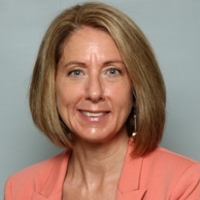 |
Lin Gallagher, Deputy Minister, Saskatchewan Ministry of Environment <bio to come> Talk
|
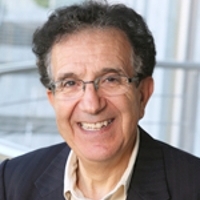 |
Taieb Hafsi, HEC Montreal Taieb Hafsi is the Walter J. Somers Professor of International Strategic Management at HEC Montréal. He was a Professor of Policy in the Faculty of Management of McGill University. Hafsi earned his MS in Management from the MIT Sloan School of Management, and his Doctor in Business Administration from Harvard Business School. He has authored or co-authored 38 books or monographs and collaborated on many others and he has directed two book series. Talk |
 |
Margot Hurlbert, Johnson Shoyama Graduate School of Public Policy Margot Hurlbert’s research focus is on governance and climate change, energy and water; interrogating laws, policies and practices that will address both the problem of climate change and adaptation, and mitigation to the changing climate. She has participated in and led research projects focusing on aspects of governance including energy, water, agricultural producer livelihoods, drought, and flood. The geographical focus of her research is western Canada and South America. Hurlbert has authored numerous journal articles, book chapters and scholarly papers on a broad range of topics but more recently on the subjects of energy, Aboriginal justice, water and climate change adaptation. She has co-authored a book entitled School Law and the Charter of Rights and Freedoms with her fathers (second edition 1992), edited a book Pursuing Justice, an Introduction to the Study of Justice in 2010 (currently working on a second edition), co-edited Vulnerability and Adaptation to Drought: The Canadian Prairies and South America in 2016, and published, Adaptive Governance of Disaster: Drought and Flood in Rural Areas in 2018. Talk |
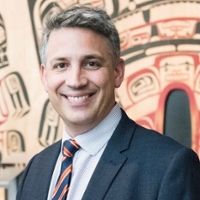 |
Luc Juillet, University of Ottawa Luc Juillet is an associate professor in the Graduate School of Public and International Affairs and Associate Director (Graduate Studies) at the University of Ottawa. His research tends to be divided between problems of democratic government and public administration, such as the regulation of political ethics and civil service reform, and problems related to the politics of environmental policy-making. In his work, he mainly uses theoretical frameworks derived from historical neoinstitutionalism and framing analysis to understand the political factors and dynamics that lead to particular policy choices. As a result, his research is essentially qualitative, using process tracing, textual analysis and elite interviewing and it often relies on case studies. Talk |
 |
Tarun Katapally, Johnson Shoyama Graduate School of Public Policy Tarun Katapally is a physician and a population health policy researcher. After obtaining clinical experience in India and the United Kingdom, Katapally went on to diversify his career towards health administration and population health policy. Apart from his clinical degree, he has a masters in health administration from Saint Joseph’s University, Philadelphia and a PhD in population health science from the college of medicine at the University of Saskatchewan. He brings a global perspective to policy research by combining his clinical experience with interdisciplinary epidemiological methods. His research network spans across diverse institutions both within and outside Canada. Currently, he holds an adjunct faculty position in the college of medicine at the University of Saskatchewan and is a research affiliate with the Indigenous Peoples’ Health Research Centre and the Canadian Centre for Health and Safety in Agriculture. Internationally, he is the India lead for the generation of the Global Report Card on physical activity of children, a knowledge translation endeavour to inform policy on active living across 40 countries. Katapally’s expertise is in linking advanced mixed-methods and complex analytical techniques with community-based participatory research to understand the impact of policy and policy-driven contexts and systems on health and wellbeing of populations. Increasingly, his focus is on the usage of digital epidemiological tools in informing active living policy through integrated knowledge translation to promote the health of vulnerable populations such as Indigenous youth. Talk |
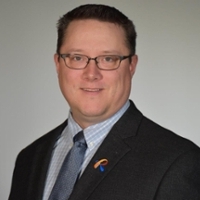 |
Greg Kuntz Greg Kuntz is the Manager of Environmental Services for the City of Regina. Greg received a Bachelor of Applied Science degree in Environmental Systems Engineering from the University of Regina. He is a Professional Engineer with 17 years of Civil and Environmental Engineering experience as a consultant and in his current position with the City. Greg manages a branch that is responsible for providing regulatory and environmental engineering support for the City of Regina. Talk
|
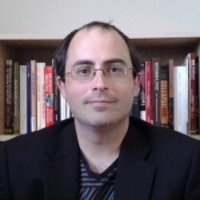 |
Mathieu Landriault, University of Ottawa <more to come> Talk |
 |
Lori Latta, University of Regina <more to come> Talk |
|
Karine Levasseur, University of Manitoba Karine Levasseur is an Associate Professor in the Political Science Department at the University of Manitoba. Her research interests include state-civil society relations, collaborative governance and public policy analysis with an emphasis on policy instruments, social policy and labor market policy. She earned her PhD from Carleton University. Talk |
|
 |
Evert Lindquist, University of Victoria Evert Lindquist is a Professor of Public Administration at the University of Victoria and Editor of the Canadian Public Administration. He served as Director of the School of Public Administration, professor at the University of Toronto, the ANZSOG-ANU Chair in Public Management Research, and the first Treasury Board of Canada Secretariat Visiting Fellow. Lindquist has served on IPAC’s Board of Directors, was a chair of IPAC’s Research Committee, and was the President of CAPPA. He has published on numerous topics including public sector reform, governance and decision-making and horizontal management. Talks
|
 |
Yuzhu Liu, Johnson Shoyama Graduate School of Public Policy Alumnus <more to come> Talk |
 |
Alex Marland, Memorial University of Newfoundalnd Alex Marland’s research and teaching centres on political marketing, public policy, election campaigning and political elites in Canada. Before entering academia he worked in Ottawa and in St. John’s in government, media relations and opinion research. He is the co-editor, with Thierry Giasson (Laval), of the UBC Press book series Communication, Strategy, and Politics. His book Brand Command won the Donner Prize for best public policy book by a Canadian. Talk
|
 |
Jim Marshall, Johnson Shoyama Graduate School of Public Policy Jim Marshall is currently a Lecturer and Executive-in-Residence at the Johnson-Shoyama Graduate School of Public Policy. Prior to this, Mr. Marshall served in the Public Service of Saskatchewan for 34 years, occupying senior policy and executive positions in the Department of Finance and Industry and Resources and at the Crown Investments Corporation. Prior to coming to Saskatchewan, Mr. Marshall lectured in economics at Brandon University and conducted research at the Library of Parliament in Ottawa. Mr. Marshall has lectured in economics and public policy at JSGS, the University of Regina, Faculty of Administration and the University of Regina, Department of Economics. He is a graduate of Brandon University and the University of Calgary. Talk |
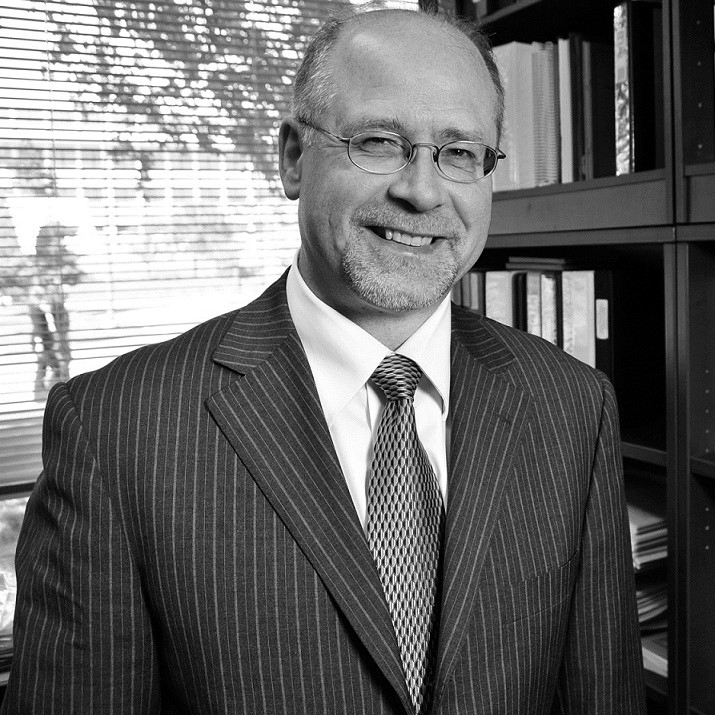 |
Greg Marchildon, University of Toronto Gregory Marchildon is currently an Ontario Research Chair in Health Policy and System Design in the Institute of Health Policy at the University of Toronto. He previously worked as a CRC in Public Policy and Economic History in the Johnson Shoyama Graduate School of Public Policy, the Executive Director in the Commission on the Future of Health Care in Canada for the Government of Canada, a Senior Fellow at the Saskatchewan Institute of Public Policy, Deputy Minister to the Premier and Cabinet Secretary and the Deputy Minister of Intergovernmental Affairs for the Government of Saskatchewan. He earned his BA and MA at the University of Regina, his JD at the University of Saskatchewan, and his PhD at the London School of Economics and Political Science. Talk
|
 |
Tim A. Mau, University of Guelph Tim Mau is an Associate Professor in the Department of Political Science at the University of Guelph, where he teaches courses on Business-Government Relations, Local Government and Public Management and Administration for the B.Comm. in Public Management and graduate level courses for the Guelph-McMaster Collaborative M.A. in Public Policy and Administration. He also teaches a course on the Politics of Organizations for the collaborative M.A. (Leadership) program. Mau completed his PhD at St Antony’s College, Oxford University, where he was a Commonwealth and SSHRC scholar, an MA in Public Policy and Administration from the University of Guelph (joint program with McMaster University) and a BA from the University of Guelph. Talk |
 |
Sara McPhee-Knowles, Yukon Government and Johnson Shoyama Graduate School of Public Policy Alumnus Sara McPhee-Knowles is currently a Policy Analyst with the Government of Yukon, and was previously a Director of Policy and Communications with the Government of Yukon as well. She briefly worked as a Lecturer at the University of Saskatchewan and was a Quality Supervisor at Martiz Research. McPhee-Knowles earned her BA in Public Administration with high honors at the University of Saskatchewan and later completed her PhD in Public Policy with the Johnson Shoyama Graduate School of Public Policy. Talk |
 |
Jim McDonald, City of Saskatoon Jim McDonald became the Director of Transit for the City of Saskatoon in 2015, after eight years of service in various managerial positions with the Edmonton Transit System for the City of Edmonton. He was an Officer with the Canadian Forces for over 22 years, where he acted as the Chief of Logistics, Operations Manager, and the Officer Commanding Transportation and Administration. He is a University of Saskatchewan alumni, where he earned his BA in History and Political Science at St. Thomas More College. He is currently a Member of the Board of Directors as a Chair in the Workforce Development Committee with the Canadian Urban Transit Association, and he was previously the President of the City of Edmonton Management Association. Talk |
 |
Andrea Migone, IPAC Andrea Riccardo Migone currently works as the Director of Research and Outreach at the Institute of Public Administration of Canada. He was previously a Lecturer at Simon Fraser University and worked with the Indian Residential Schools Resolution Canada during his time as a Consultant with Canadian Development Consultants International Inc. Migone earned his Bachelor’s in Political Science and Government at the Universitá degli Studi di Genova, and completed his MA and PhD in Political Science and Government at Simon Fraser University, where he later worked as a Postdoctoral Fellow. Talks
|
 |
Greg Miller, Deputy Minister, Saskatchewan Ministry of Social Services <bio to come> Talk
|
 |
Haizhen Mou, Johnson Shoyama Graduate School of Public Policy Haizhen Mou' primary research interests include health care financing and expenditure, cost and efficiency of public sectors, and government budget management, often from a political economy perspective. She received a SSHRC grant and several other awards. Her main teaching responsibilities include Public Finance and Quantitative Research Method for graduate students. She has supervised five Ph.D. or MPP students and served on numerous graduate thesis committees. She volunteered as a board member for a local non-profit organization focusing on seniors. Talks |
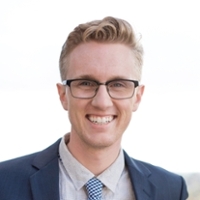 |
Eric Neudorf, Statistics Canada and Johnson Shoyama Graduate School of Public Policy Alumnus Eric Neudorf is an economic analyst at Statistics Canada. Before that he worked as a teacher in Saskatoon while completing a master’s degree at the Johnson Shoyama Graduate School of Public Policy. Talk |
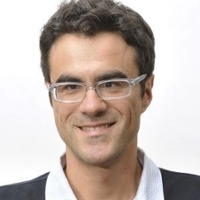 |
Mathieu Ouimet, Université Laval Mathieu Ouimet became a Professor in the Department of Political Science at Université Laval in 2016, working as an Associate Professor prior to. His research interests include public administration and governance, health policies and systems, political science, and strategies to promote voter turnout, transfer and mobilization of scientific knowledge. Talks |
 |
Natalie Owl, University of Regina Natalie Owl is currently a Sessional Lecturer and Researcher at the First Nations University of Canada (FNUC). Prior to beginning with FNUC in 2014, Owl was a Treatment Counsellor with Regina Native Youth and a Researcher and Consultant with the Aboriginal Court Worker Program. Owl holds two Bachelor’s degrees, one in Ojibwe Linguistics from the FNUC, and the other in History with a minor in Native Studies from Trent University. She completed her MA in Linguistics and Indigenous Studies at the University of Regina and is currently working towards her PhD in Linguistics, Indigenous Studies, and Education and Health at the University of Regina. Talks |
 |
Peter Phillips, Johnson Shoyama Graduate School of Public Policy Dr. Phillips is Distinguished Professor and Founding Director of the Johnson-Shoyama Center for the Study of Science and Innovation Policy. He earned his Ph.D. at the LSE and practiced for 13 years as a professional economist in industry and government. At the University of Saskatchewan, he was the Van Vliet Research Professor, created and held an NSERC-SSHRC Chair in Managing Technological Change in Agriculture, was director of the virtual College of Biotechnology, was founding director of the JSGS. He has had appointments at the LSE, OECD, European University Institute in Florence, University of Edinburgh and University of Western Australia. He was a founding member of the Canadian Biotechnology Advisory Committee and was on the boards of Canadian Agri-food Policy Institute, Pharmalytics and Ag-West Bio Inc. He has held >15 peer-reviewed grants worth >$250 million and is author/editor of 15 books, >60 journal articles and >55 book chapters. Talk
|
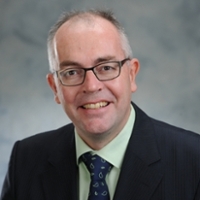 |
Kevin Quigley, MacEachen Institute for Public Policy and Governance Kevin Quigley is a professor in Dalhousie’s School of Public Administration, Faculty of Management, he specializes in public sector risk and crisis management, strategic management and critical infrastructure protection. He founded the Critical Infrastructure Protection (CIP) Initiative at Dalhousie, an interdisciplinary research team that seeks to enhance collaboration between multiple stakeholders on questions concerning the management of Canada’s critical infrastructure. He has worked on research and innovation projects with public sector organizations such as Public Safety Canada, Defense Research and Development Canada, Canada School of Public Service, Public Safety New Brunswick, Nova Scotia Public Service Commission, Global Affairs Canada, Treasury Board of Canada Secretariat and the Canadian Water and Wastewater Association. He has contributed to many national and international research initiatives that have raised millions in support of risk research. Talk |
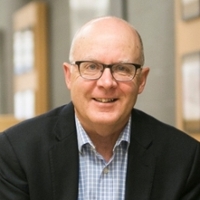 |
Ken Rasmussen, Johnson Shoyama Graduate School of Public Policy As the former associate director of the Johnson Shoyama Graduate School of Public Policy, Ken Rasmussen worked closely with the JSGS leadership team in developing the school’s academic programs, conferences, executive training programs and other engagement strategies. Rasmussen's main research interests include public enterprise management, administrative reform, administrative history, non-profit organizations, ethics and leadership, and provincial politics.
Talks |
 |
Jeremy Rayner, Johnson Shoyama Graduate School of Public Policy Jeremy Rayner ‘s main areas of specialization in public policy include theories of the policy process (especially policy learning and policy change), policy analysis, governance, resource policy, energy policy and environmental policy. His research currently focuses on governance arrangements for complex policy problems, especially at the intersection of forests, climate change and energy. As chair of the Global Forest Expert Panel on the International Forest Regime from 2009-2011, he was responsible for editing and contributing to the panel’s assessment report, and co-authoring and presenting the panel’s policy brief to the ninth session of the United Nations Forum on Forests in January 2011. Rayner continues to work in the area of international forest governance, including a capacity building project in south east Asia and a European-sponsored research group on “forests+”. In the Genome Canada funded VALGEN project, co-led by JSGS colleague Peter Phillips, he is the theme leader for “democratic engagement” research, working on the influence of public consultations around biofuels on policy development. With Kathleen McNutt (JSGS Regina campus) he is working on the concept of nodality in network governance. Talk |
 |
Garrett Richards, University of Saskatchewan Garrett Richards currently works as a Postdoctoral Fellow and a Sessional Instructor with the School of Environment and Sustainability at the University of Saskatchewan. He holds two Bachelor’s degrees, one in Environmental Studies and Biology and the other in Political Science, and his Master’s in Environment and Sustainability, all from the University of Saskatchewan. Richards earned his PhD in Political Science and Environmental Studies from the University of Victoria. Talk |
 |
Philip Rocco, Marquette University Philip Rocco is an Assistant Professor in the Department of Political Science. His research examines the consequences of institutional fragmentation for the development of public policy, with a focus on the politics of health reform in the United States. He teaches courses on American politics and the policymaking process. Rocco was formerly a postdoctoral associate at the University of Pittsburgh's Health Policy Institute. He earned his Ph.D. and M.A. degrees from the University of California, Berkeley. Talk
|
 |
Andrea Rounce, University of Manitoba Andrea Rounce is an Associate Professor in the Political Science Department at the University of Manitoba. Her research interests include governance, and public management and public policy analysis including governance within public institutions. She earned her PhD at Carleton University. Talk
|
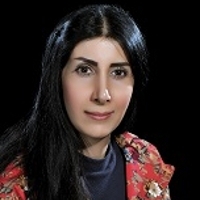 |
Khadijeh Rouzbehani, University of Victoria Khadijeh (Roya) Rouzbehani joined University of Victoria’s School of Public Administration as a Postdoctoral Fellow in 2017, where she explores policy, collaboration, strategic communication, public health, knowledge management and corporate social responsibility. She was previously teaching at the School of Management, University of Victoria. Rouzbehani is currently publishing her second book on political factors influencing public health, with her first focusing on social and economic aspects of public health policy. Talk |
 |
Andrea Rowe, Feminuity Andrea Rowe is an innovator and policy leader with a track record of excellence in government and academic research. Andrea has a Ph.D. in Comparative Public Policy from McMaster University in Hamilton, Ontario, Canada. Andrea’s academic research focuses on explaining how government policy, performance measurement, and resources allocation influences equality of opportunity in national innovation systems. Her research includes interviews with leaders in government, academia, the private sector in Canada, Sweden, and the Organization for Economic Cooperation and Development (OECD), in Paris, France. Andrea is an enthusiastic thought leader with a passion for translating academic research into meaningful recommendations for clients. Her strength is seeing the big picture and helping clients to understand innovation in a global context. Andrea is particularly interested in working with governments, NGO’s, and corporate clients on developing strategies for innovation that involve policy development and policy change. Talk |
 |
Geoff Salomons, University of Alberta Geoff Salomons is currently a PhD Candidate at the University of Alberta, where he is also serving as a SSHRC Doctoral Fellow and previously a Research Assistant. Salomons was also an Academic Director for IPAC, a Research Assistant with the European Union Centre of Excellence at the University of Alberta, and a Teaching Assistant at the University of British Columbia. He earned his BA in Sociology at the King’s University College, his MDiv in Theology at the Vancouver School of Theology, and his MA in Political Science at the University of British Columbia. Talk
|
 |
Sarah Saska, Feminuity Sarah Saska is an academic turned entrepreneur, working to guide innovation (and the disruption that comes with it) to ensure that we build a future that brings everyone forward. While pursuing her Ph.D. at Western University, Sarah developed research on the importance of diversity in innovation. Realizing the importance of her research, Sarah became a fellow at MaRS Discovery District to gain the support she needed to translate her research into practice. Now as Co-Founder and CEO of Feminuity, Sarah and her partners have quickly become global leaders at the intersection of diversity and innovation, with clients from pre-revenue startups to $1.6B companies globally. Talk |
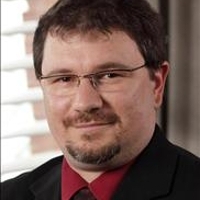 |
Jean Francois Savard, École nationale d'administration publique Jean-François Savard is an Associate Professor in the Directorate of Education and Research at the National School of Public Administration. He was previously a Research Analyst in Public Policy and a Senior Policy Analyst in the First Nations and Inuit Health Branch of Health Canada. He has research interests in aboriginal policies, aboriginal regional and local governance, public policy development and analysis, and Canadian federalism. Savard received his BA and MA in Political Science at Université Laval, and his PhD in Political Science from Carleton University. Talk |
|
Talk
|
|
 |
Elizabeth Schwartz, Johnson Shoyama Graduate School of Public Policy Elizabeth Schwartz's primary research interests include local government decision making at the intersection of climate change policy and energy policy and local governments' decisions regarding support for or opposition to large energy development projects. Her research has been funded by a number of external granting agencies, including the Pacific Institute for Climate Solutions. She has disseminated her findings as publications and at numerous conferences and invited presentations in Canada and the United States. Talk |
 |
Mark (Won Min) Seo, University of Ottawa <more to come> Talk
|
 |
Robert Shepherd, Carleton University Robert Shepherd's research spans public management and governmental reform, Indigenous public management, ethics, and policy and program evaluation. He is interested in how public accountability and oversight systems intersects to improve overall public management and governance systems. In addition, his research extends to understanding how governmental program evaluation functions can improve public policy and decision-making. Improving ethics in government also contributes to governmental legitimacy and democracy. Talk |
 |
Mohammed Sherief, Johnson Shoyama Graduate School of Public Policy <more to come> Talk |
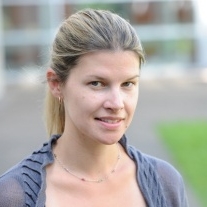 |
Lori Turnbull, Dalhousie University Lori Turnbull joined the Department of Political Science as a faculty member in July of 2005. She teaches courses in introductory politics, Canadian parliamentary government and pressure politics. Her major areas of research are Canadian parliamentary governance, political ethics, elections, electoral systems, and public engagement. Her work has been published in the Canadian Public Administration journal, the Canadian Political Science Review, the Journal of Parliamentary and Political Law, and How Ottawa Spends. Recently, she worked as a policy researcher for the Commission of Inquiry into Certain Allegations Respecting Business and Financial Dealings Between Karlheinz Schreiber and the Right Honourable Brian Mulroney. Talk |
 |
Alex Waddan, University of Leicester Alex Waddan is an Associate Professor in American Politics and American Foreign Policy and he is also a member of the Centre for American Studies at the University of Leicester in the United Kingdom. Talk
|
 |
Jared Wesley, University of Alberta Jared Wesley's career has taken him from government boardrooms to university classrooms. Prior to joining the Department of Political Science, he served in various senior management roles in the Government of Alberta, including as Director of Learning and Development Policy (Public Service Commission), Senior Operations Manager (Executive Council), and Director of Intergovernmental Relations (Executive Council). He is also Vice Chair of the Institute of Public Administration of Canada (IPAC) Edmonton Regional Group, helping to build bridges between academics and public policy professionals throughout Canada. Talk |
 |
Anna Wilson, University of Alberta Anna Wilson is a Researcher at the University of Alberta and she holds a Master of Library and Information Studies, Indigenous Knowledge and Disability Studies, and a Master’s in Theoretical, Cultural and International Education Policy Studies, both from the University of Alberta. Talk
|
 |
Amy Zarzeczny, Johnson Shoyama Graduate School of Public Policy Amy Zarzeczny is an Assistant Professor with the Johnson Shoyama Graduate School of Public Policy, University of Regina campus. After completing law school at the University of Alberta, she clerked for Alberta’s Court of Queen’s Bench and Court of Appeal and practiced law with the firm of Reynolds, Mirth, Richards & Farmer LLP in Edmonton, Alberta. Zarzeczny subsequently obtained her Master of Laws from the London School of Economics and Political Science, following which she held an Academic Trust appointment as a Research Associate with the University of Alberta’s Health Law Institute. Zarzeczny later served as Crown Counsel with the Ministry of Justice and Attorney General of Saskatchewan in the Policy, Planning and Evaluation Branch. She is now an External Research Fellow with the University of Alberta’s Health Law Institute, serves on the Canadian Institutes of Health Research (CIHR) Stem Cell Oversight Committee, and is an active pro bono member of the Law Society of Saskatchewan. Her research focuses on health law and health policy issues including, in particular, legal, bioethical and policy challenges associated with emerging biotechnology, unproven and experimental medical interventions and medical tourism. Her research has been funded by CIHR, Genome Canada and the Stem Cell Network. Zarzeczny also has a strong interest in health care administration and teaches courses in Health Law, Health Policy and Health Care Organization and Administration. Talk |

